Common Cannabis Seedling Problems and How To Fix Them

- 1. Healthy cannabis seedlings
- 2. Overwatering
- 2. a. How to fix it
- 3. Underwatering
- 3. a. How to fix it
- 4. Nutrient problems
- 4. a. How to fix it
- 5. Excessive heat
- 5. a. How to fix it
- 6. Too much (or too little) light
- 6. a. How to fix it
- 7. Seed shell stuck on seedling
- 7. a. How to fix it
- 8. What to have in mind during the cannabis seedling stage
- 9. Faqs about cannabis seedling problems
- 10. In conclusion
Problems with seedlings are common and can end up affecting them further into their life cycle so it's vital you detect and fix them as soon as you can. Yellowing or deformed leaves, burnt tips, or even slow growth are signs of cannabis seedling problems, even though your seedling may be able to recover, it may have a toll on the final size and yields of your cannabis plants.
In the worst-case scenario, seedlings can fall prey to soil pathogens, collapse, and dry up in a very short period of time. Seedlings are inherently vulnerable. They contain less protective compounds that keep pests at bay. They only have several leaves and a tiny root system—any amount of damage can leave them without the ability to conduct photosynthesis or take up nutrients.
Thankfully, as a cannabis cultivator, there are many approaches you can take to ensure your seedlings thrive. These techniques ultimately involve providing your seedlings with everything they need to become mature and healthy plants. It’s definitely not hard to detect when something’s wrong, but if you’re a new grower, first you should know what a healthy seedling looks like.
1. Healthy Cannabis Seedlings
Cannabis seedlings start with two tiny round leaves called “cotyledons”, these leaves are already formed inside the seed and open up once the seed has been successfully germinated, after a couple of days, the first serrated leaves will appear, which indicates that your weed seedling is starting to grow. Cannabis seedlings display several key characteristics that work as signs of health. Firstly, even at this early stage, they should exhibit a dark and luscious shade of green. This color indicates that seedlings are getting more than enough light to convert into sugars that they need to grow. Provide too little light, and your seedlings will possess yellow and pale leaves instead.
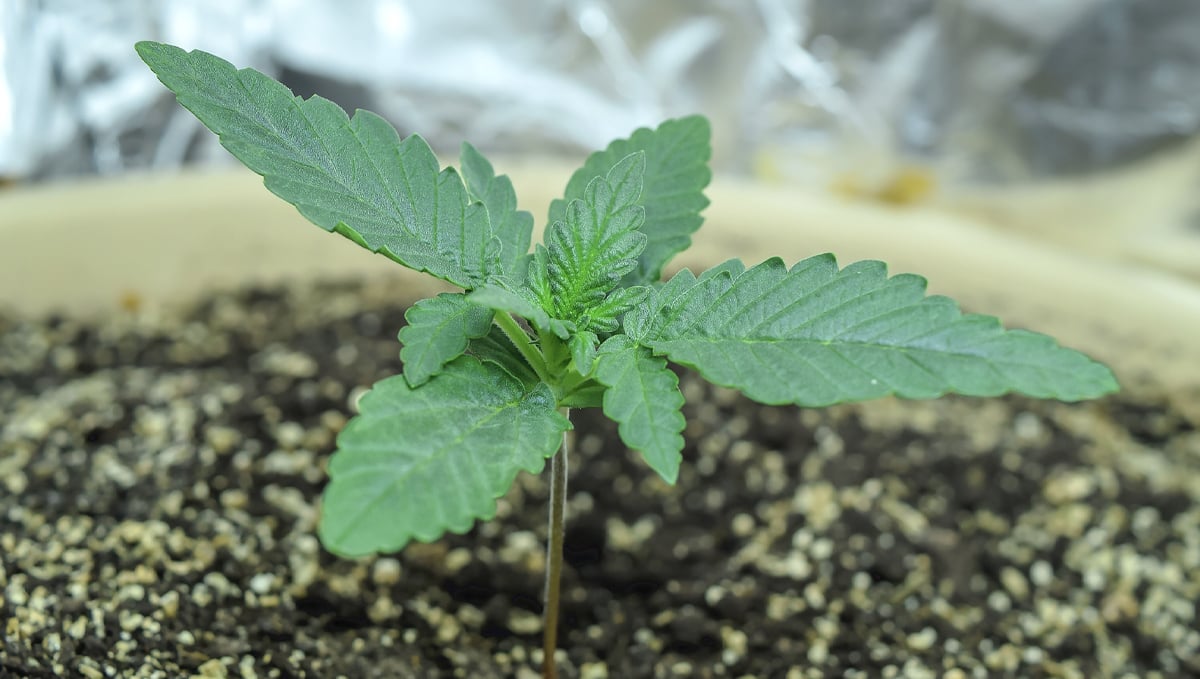
Secondly, you need to take the stem into consideration. This important anatomical structure contains the vascular system which is made up of the xylem (the tissues that transport water up from the roots) and phloem (the tissue that moves food down from the leaves). Even at this early stage, cannabis stems play a vital role in delivering nutrients to leaves and helping to pump sugars down through the roots and into the rhizosphere. From here, these valuable carbohydrates help to attract beneficial microbes that boost nutrient uptake and pathogen defense.
Stems should also be proportionate to the rest of the plant. A leggy (exceptionally long) stem is a sign of a lack of light. This can cause a weak stem further down the line. In more extreme cases, plants can collapse. What else should you look for in a healthy seedling? Turgidity! What does this mean? It basically refers to the force that keeps plants strong and upright. After taking up water, plants store a lot of it in a part of their cells called vacuoles. As these organelles swell, they make plants stand tall and their leaves spread. As seedlings lose turgidity through dehydration, their leaves start to droop and wither. Finally, healthy cannabis seedlings should appear disease-free. The symptoms of common seedling diseases include plants completely falling over and their stems shriveling up.
2. Overwatering
Overwatering is one of the most common cannabis seedling problem amongst growers, even though weed plants need water to grow, they also need oxygen to properly develop, and when overwatering, you may end up drowning your plants because of the lack of oxygen. It might surprise you, but plant roots breathe. The pores between soil particles contain oxygen, and plant roots uptake this critical molecule through diffusion. Once inside the plant, they use oxygen in the process of cellular respiration—the process of breaking down sugars into energy.
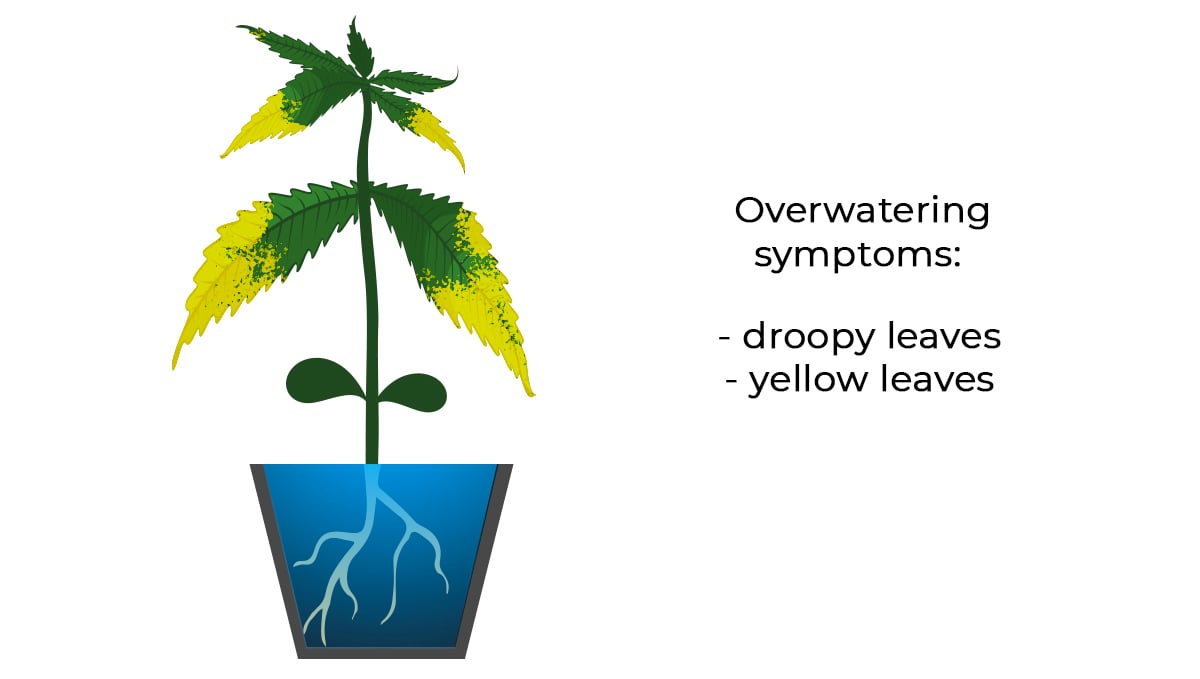
What about plants grown in hydroponics? Well, in hydroponic setups, about ⅓ of the roots are kept out of the water, this way they can breathe at the same time that they absorb water so even though the roots are in the water, they still get the oxygen they need. When your plants don’t get the amount of oxygen they need, the leaves will start getting droopy and if you don’t treat it for long, the leaves will start to get yellow. If you are seeing any of these symptoms, it’s most likely the problem is being caused by any poor drainage or watering too often. As well as suffocating plants, an overwatered growing medium can become anaerobic (void of oxygen) and attract nasty plant pathogens. For example, a root pathogen known as pythium thrives in wet soil.
How to fix it
- Don’t leave plants sitting in runoff water.
- Get better containers such as Smart pots or Air pots.
- Mix perlite into the soil to increase drainage and oxygenation.
- Make drainage holes on the bottom of the container to allow water to drain.
3. Underwatering
Just like overwatering, underwatering is very common, especially among new growers who want to prevent overwatering and it can be quite confusing because the symptoms are basically the same as when overwatering. It’s essential you ensure your plants have access to water at all times, the roots should be kept moist always because plants are constantly losing water through the process of transpiration and they need to be able to replenish the water in the leaves.
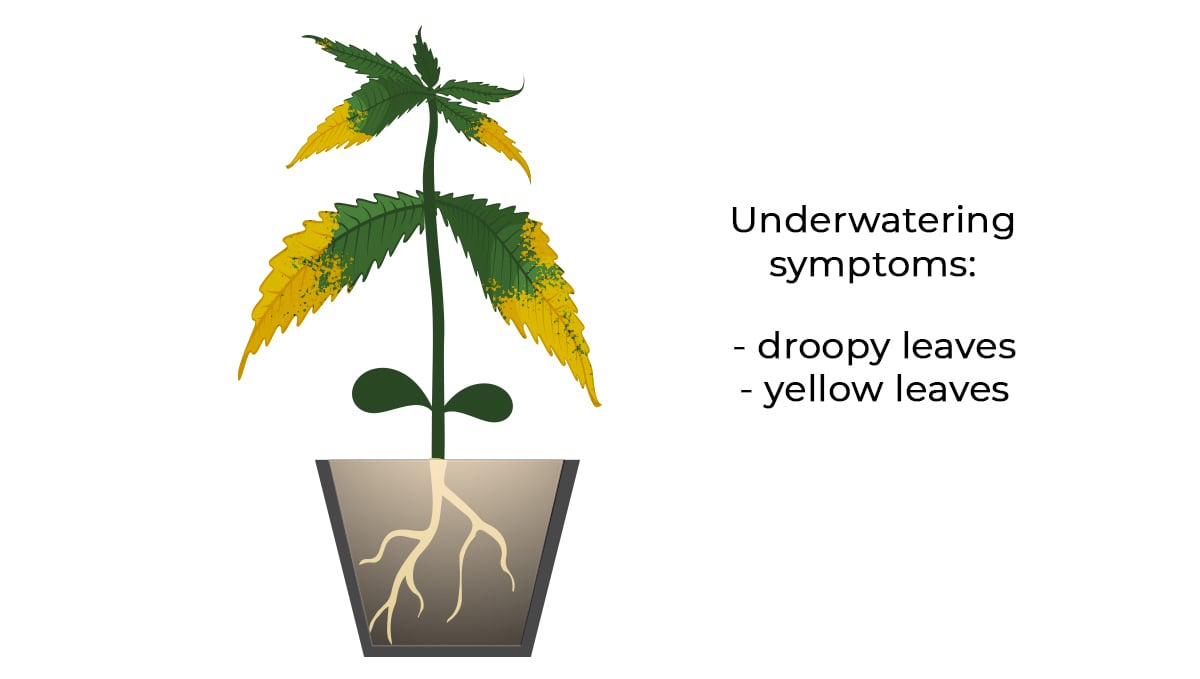
Water—the molecule of life—plays several critical roles in cannabis plants. Firstly, it’s fundamental in the process of photosynthesis. Alongside carbon dioxide and sunlight, cannabis plants use water to create important sugars that they require for energy. Secondly, plants need water to stay upright, solid, and firm. The turgidity plants derive from water helps them to resist excessive wind and heat. When there’s not enough water, cannabis plants stop performing their basic processes and dry out, eventually killing them so even though you should be careful when watering, you should definitely keep your plants watered to avoid seedling problems.
How to fix it
- Ensure the top part of the soil is always moist.
- Mix soil with coco fiber or vermiculite to improve water retention.
4. Nutrient Problems
Just like the symptoms of overwatering or underwatering, plants that suffer from a nutrient excess (overfeeding) will start to get yellow leaves or yellow spots, burnt tips, or show slower growth. Seedling problems related to nutrients are usually caused by giving nutrients too soon, giving too many nutrients at once, or “hot” super soil or pre-amended soils. Giving too many nutrients at a time can cause problems overnight, so we recommend watering your seedling with plain water and taking a look at the following table so you prevent any seedling problems related to nutrients.
| The ideal water for seedlings | ||
|---|---|---|
| Medium | pH | PPM |
| Soil | 6.0-7.0 | 100-250 |
| Coco, clay pellets, and hydro | 5.5-6.2 | 300-400 |
Have in mind that these are estimates and you should check every day for problems and lower or increase these numbers if you see signs of deficiencies. Giving nutrients too soon will overload the soil, and consequently, your seedling so remember that you shouldn’t feed for the first couple of weeks or at least give a low nutrient dose.
This can also happen with organic super soil, even though it’s organic, you need to wait until your super soil isn’t “hot” anymore, “hot” soil means that the mix is still undergoing biological activities so you will have to wait around 30-45 days before you can use it, although this is not the case with all super soils so make sure you get more information on the product you’re using to avoid seedling problems.
How to fix it
- Ensure you adjust the nutrient dose according to the medium you’re growing in.
- Wait at least 10 days before you start feeding your plants.
- Read the instructions on the products you’re using.
5. Excessive Heat
Excessive heat can also affect your plants, which will end up showing signs of heat stress, you will see the edges of the leaves turning up like tacos and they will start to get dry and crispy, and in more extreme cases, the leaves will start showing a yellowish-green color.
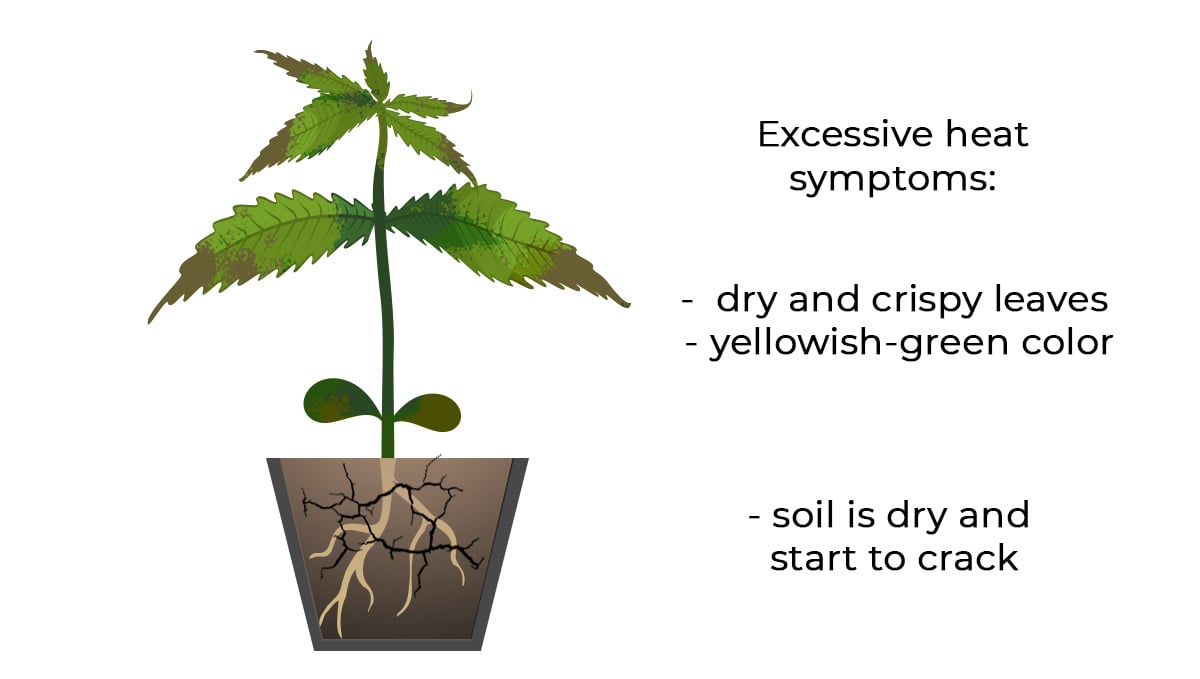
This can be caused by elevated temperatures, low humidity, or even the fans being too strong, but luckily, this can be easily spotted before your plants start showing the symptoms because you will see the soil is dry and sometimes it will start to crack.
How to fix it
- Make sure the temperature and humidity are at the right levels.
- Place your hand under the light fixture, if it’s too hot for you, it definitely is for your plants.
- Ensure your fans are not too strong for the stage your plants are in.
6. Too Much (or Too Little) Light
Another common problem among new growers is not providing enough or providing too much light in the seedling stage, if your seedlings are not getting enough light, they will start stretching and the stem will get super long, which is a bad thing because they can easily snap and there’s no way to fix it.
A leggy stem might not seem like a big deal while your plant remains a seedling. However, overly long stems can become highly problematic further down the line. Chances are, as your plants get heavy by developing new leaves, stems, and buds, your plant won’t be able to deal with the weight.
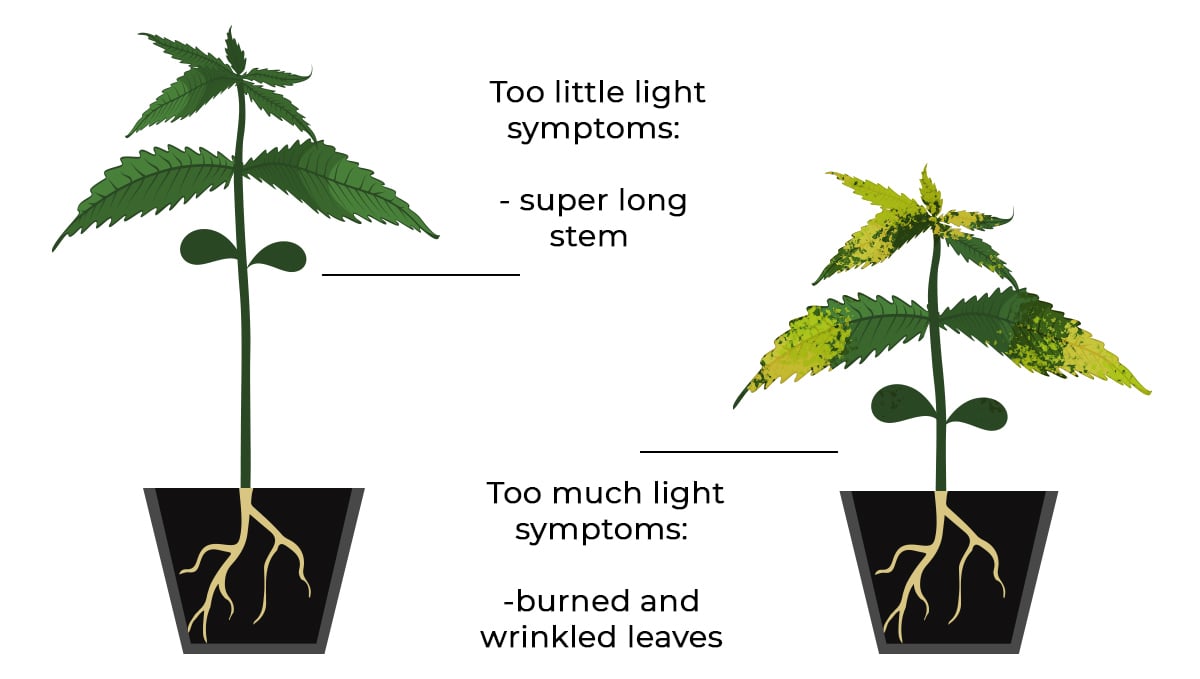
Now, when your seedlings are getting too much light, or the lights are too close to them, the seedling will get dehydrated and the leaves will get burnt, showing symptoms like burned and wrinkled leaves.
How to fix it
- Adjust the light fixture’s distance from the seedling every day, try to find the sweet spot.
- Use CFLs instead of potent LEDs or HPS to avoid this kind of problem.
7. Seed Shell Stuck on Seedling
Sometimes, when a seedling comes out of the substrate you’ll see how the seed shell is stuck on the seedling and won’t come off naturally. When this happens, your seedling won’t be able to develop properly and you’ll probably see a lot of stretching, and if left for too long, the seedling can end up dying. This happens because of the humidity levels, so in order to minimize the damage, there are a couple of things you can do.
How to Fix It
As mentioned, this happens because of humidity levels, low humidity levels to be precise, so what you need to do is hydrate the seed shell. So go ahead and spray the seedling with plain water or just drop one or two droplets of water on the seed shell, this will hydrate it enough for the seed shell to fall off. Keep in mind that sometimes the seed shell falls off but a membrane covering the cotyledons can remain stuck and your seedling will not be able to open so make sure to grab some tweezers or remove the membrane with your fingers but do it very, very carefully.
If you need to do it asap and don’t want to wait for the seed shell to fall, you can remove it by hand without spraying it but keep in mind that if the seedling’s roots have not grown enough, you can end up removing the seedling from the soil so do not use excessive force. It’s highly recommended to hydrate the seed before just to avoid shock or stress, especially to avoid removing the seedling from the substrate completely.
- Make sure to keep the humidity levels in range with the help of a humidifier.
- Place a plastic dome (like a cut-out plastic bottle or plastic cup) on top of the seedling to help keep higher humidity levels.
8. What To Have in Mind During The Cannabis Seedling Stage
In order to avoid all the cannabis problems mentioned throughout the article, here are the main tips that will help you avoid them and keep your cannabis seedlings healthy and happy.
The Perfect Environment
The relative humidity and temperature will directly affect how your seedling grows so make sure the light is not too strong but your cannabis is still getting enough light and the temperature is around 21-23 ºC and the relative humidity ranges from 70-80%. Failing to provide good conditions can affect plant growth and can ultimately kill your plants if left untreated for too long, so here’s what to expect in the different conditions:
Substrate is too wet
If the substrate is too wet, the seeds can drown. Despite seeds being germinated in water, it’s not okay for the substrate to be extremely wet so always make sure the substrate is moist but not soaking.
Substrate is too dry
Cannabis seeds need moisture to germinate so make sure the substrate is moist but not excessively wet as excessive dryness can make your seeds not germinate and die.
Watering Properly
Watering cannabis seedlings properly is the hardest part for beginner growers, watering too much can result in an overwatered cannabis plant, and watering too little can result in an underwatered weed plant so make sure you start watering with around 100 ml and increase the amount according to how your plants grow.
Seeds were planted too deep
1 - 3 cm is the deepest you should go in order to provide support to the roots and cover the seeds with the substrate. If you plant the seeds too deep the seedling could have a hard time sprouting out of the substrate so do not plant it too deeply.
Environment is not warm enough
Seedlings prefer warmer temperatures ranging from 22 -26 celsius and will grow at a slower rate in colder temperatures.
Environment is too humid
It’s recommended to use a plastic dome for newly born seedlings but remember to remove them as soon as the seedling starts developing the first pair of one-fingered leaves after the cotyledons as a high humidity can cause damping off, which results in seedlings folding over and dying.
Light Intensity
Marijuana light burn can indeed hurt your plants if the light is too strong. Seedlings are more fragile than adult weed plants so make sure you dim down the light or adjust the fixture’s light to avoid stressing them. Also, if your seedlings are stretching a lot it means they need more light so, if this happens, increase light intensity or place the light fixture closer.
9. FAQs About Cannabis Seedling problems
Here are the most frequently asked questions about cannabis seedling problems to help you understand a bit more and help you deal with them. Just remember that different problems may have similar symptoms so make sure you are 100% sure about what the problem is before taking drastic measures.
"Why are my seedling’s leaves turning yellow? Could it be a cannabis nutrient deficiency?"
When the leaves start yellowing it’s probably a sign of nutrient problems, this means they’re either lacking nutrients, are getting too many nutrients or getting the wrong type of nutrients.
"When should I remove the plastic dome of the seedlings?"
The plastic dome helps raise humidity for faster germination so you can remove it as soon as your plant has completely developed a pair of leaves (after the cotyledons).
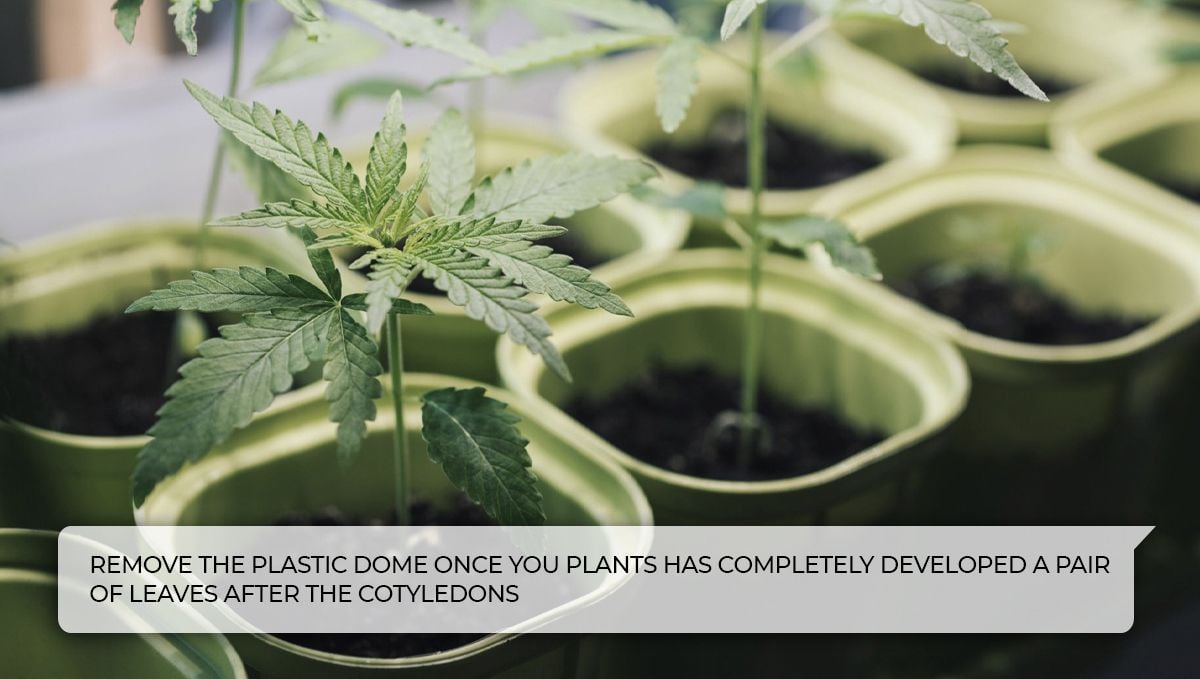
"Why are my cannabis seedling’s leaves curling down?"
This usually happens when you overwater your seedlings or when they’re exposed to higher temperatures so make sure the temperature ranges from 20 - 25 ºC and pay attention to how much water you’re watering with.
"When is it safe to put my cannabis seedlings under the light?"
Well, your seedling needs to be under light since germination but you can use a 15-20 W fluorescent light during the first 1-2 weeks and once the first pair of true leaves have completely developed, you can go ahead and place it under the LED or MH bulb.
"Is there a better light schedule for marijuana seedlings?"
The best light cycle for both autoflowering and photoperiod cannabis seedlings would be 18/6 from seed.
"Is the substrate super important for seedlings?"
Of course, the substrate mix is super important for a healthy start. Some growers prefer a “light mix” which can provide nutrients for the initial weeks and others make their own blends with perlite and coco fiber. There’s no best substrate but a substrate mix that allows for good oxygenation and water retention is ideal.
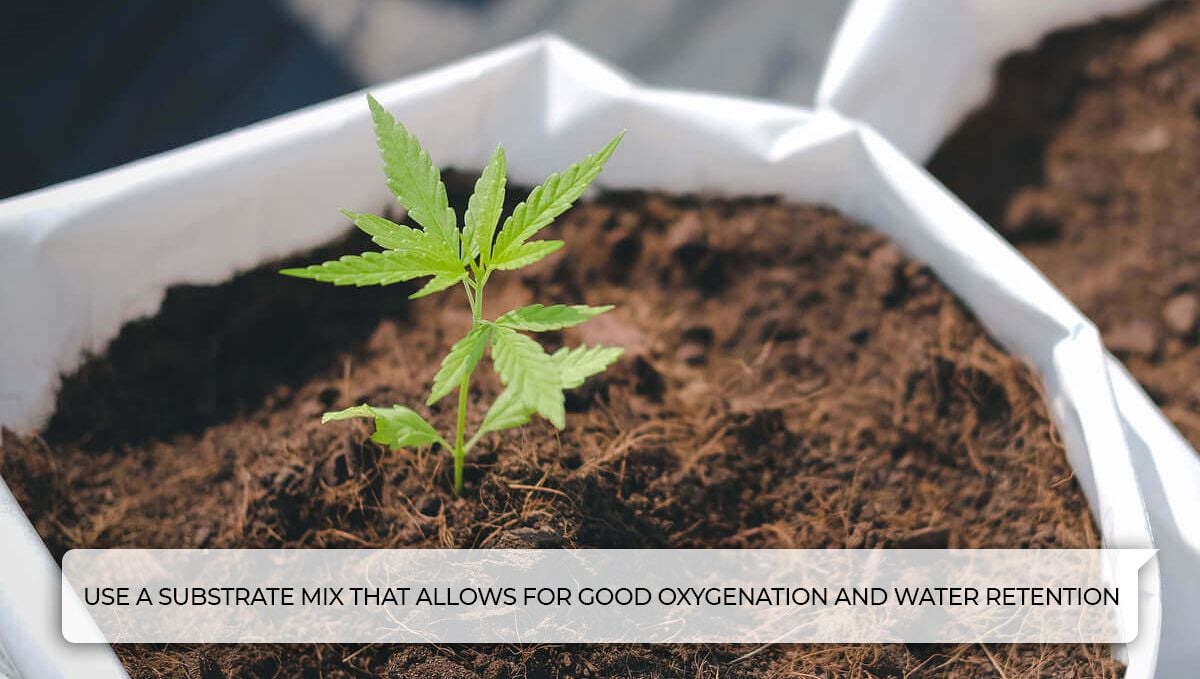
"Why are my marijuana seedlings growing so slow?"
This is the hardest question because it can be caused by several things. Your cannabis seedlings may be lacking nutrients or it could be caused by lack of proper lighting and extreme temperatures or humidity.”
"How far should the grow light be from the cannabis seedling?"
If you’re using a CFL light, the lights should be 5 - 10 cm from the seedlings. If you’re using HPS or MH, the light should be around 25 - 40 cm from the seedlings and if you’re using LEDs, the fixture should be at around 75 cm from the seedling with 40% light intensity if possible.
"How long does it take for the seeds to germinate and the seedling to come out of the soil?"
The germination process is usually quite fast but depending on the quality of the seeds, it may take up to 5 days or even more. Once the seeds have germinated and been planted in the pot, the seedling should take around 3 days to come out of the soil if the growing conditions are proper.
"Is it possible to know my plant’s sex during the seedling stage?"
No, you’ll only be able to tell whether your marijuana plant is a male or female during the pre-flowering stage. This happens because cannabis plants need to sexually mature in order to show either male pollen sacs or female stigmas.
10. In conclusion
Marijuana seedlings are super fragile and sensitive so you should take good care of them, avoiding cannabis growing problems at this stage is vital because even though your baby plants may recover, the size and structure may be affected, which will end up affecting your harvest. If you have tips you can share with fellow growers to help them take care of their baby plants, feel free to leave a comment in the comment section below!
External References:
- Seedlings. - Jenkins, Elwyn. (2020).
- Effect of seedling grades on seedling vigour of Azadirachta indica. - Mani, Gangadharan & A.Bharathi,. (2020).







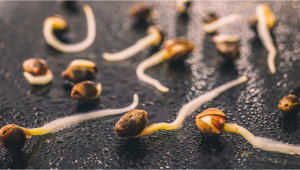
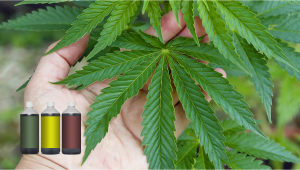
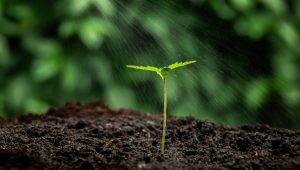
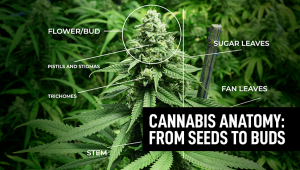

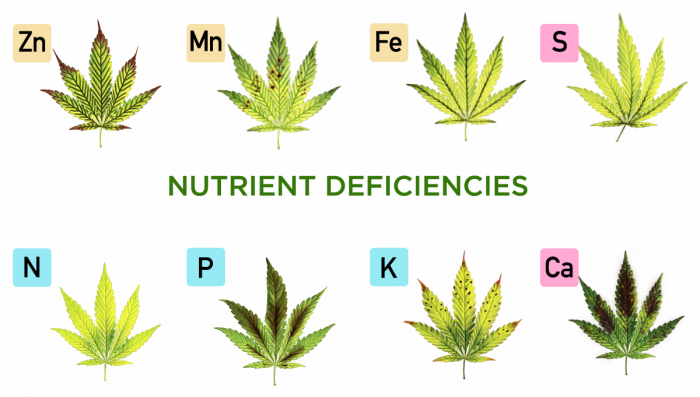
Comments